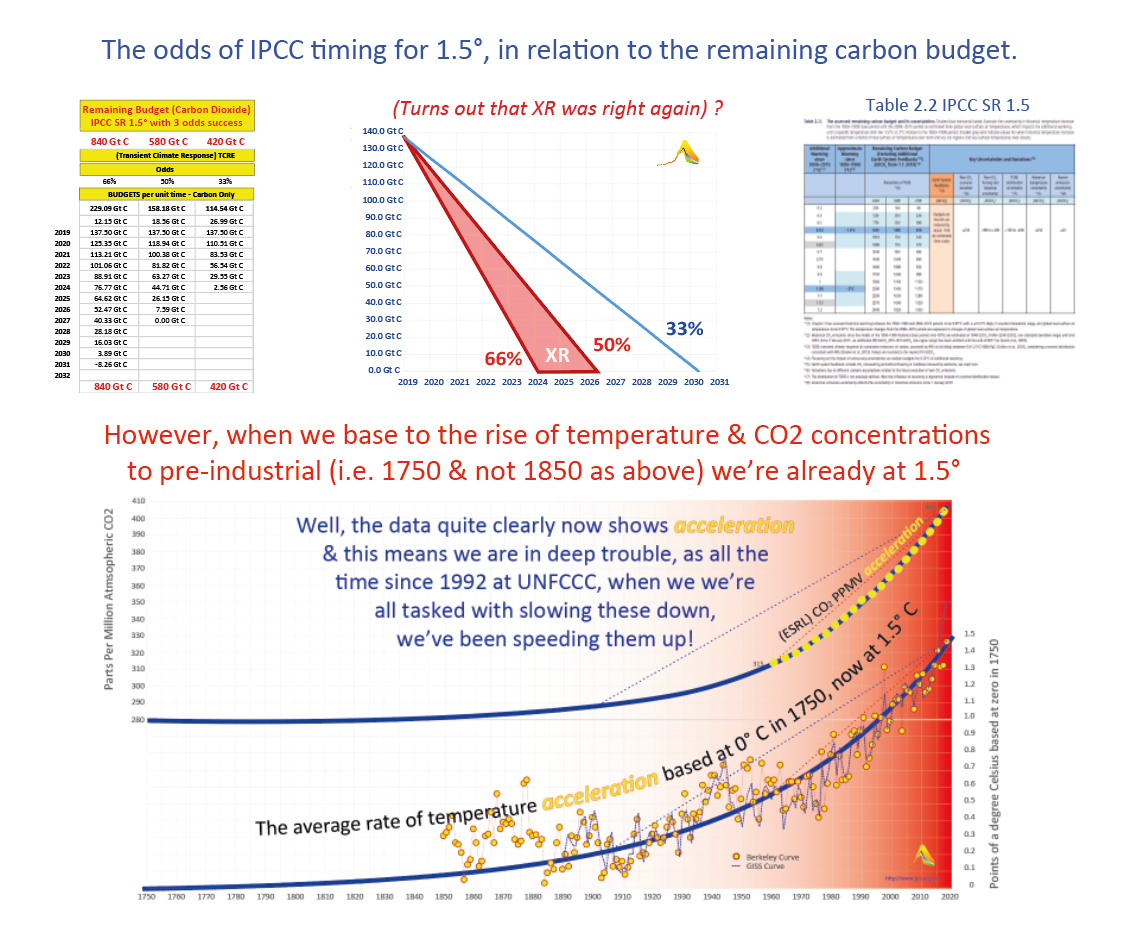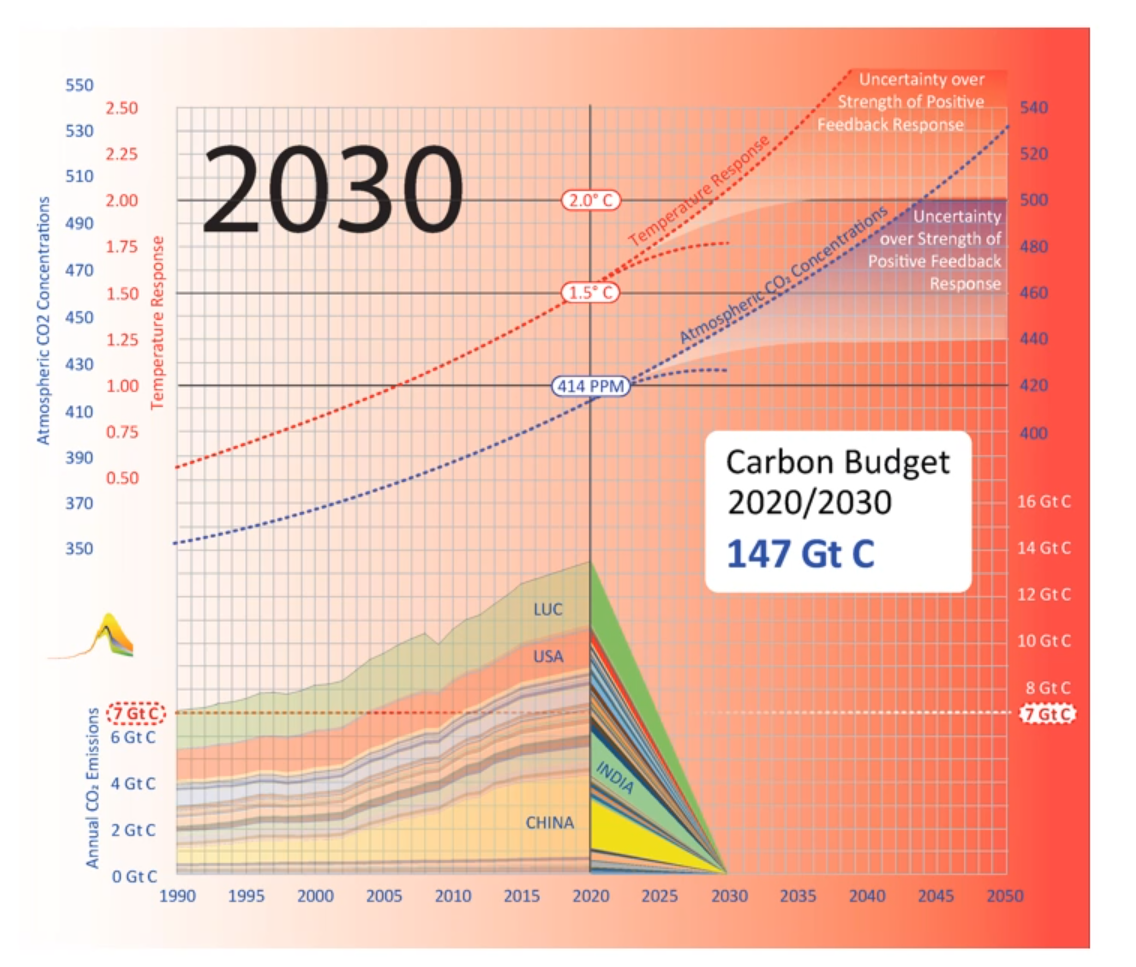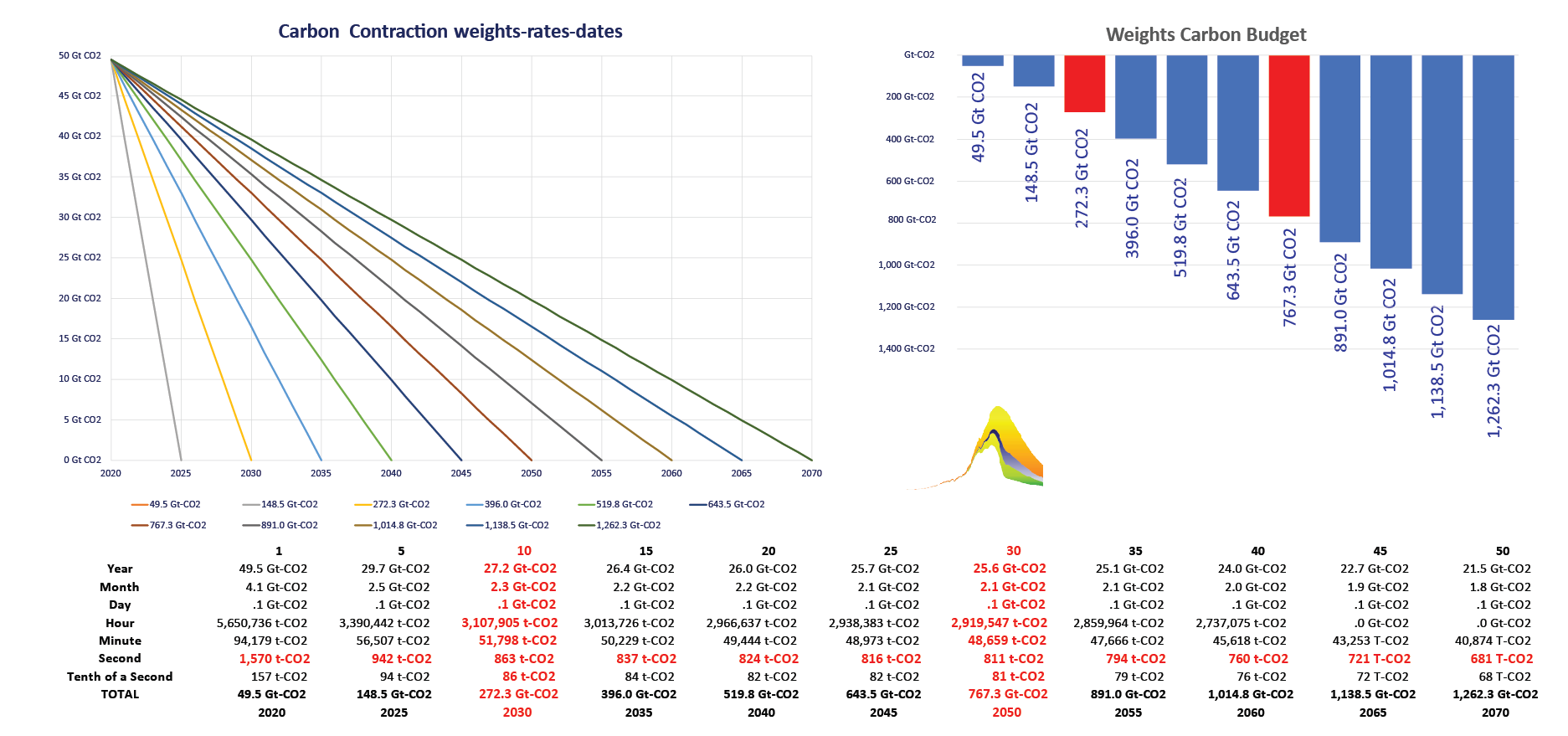C&C is the principle upon which the UK Climate-Act is based.
 Click logo to return to 'links-page'
Click logo to return to 'links-page'
- Contraction & Convergence (C&C) first 20 years (1989-2008)
- The Royal Commission on Environmental Pollution advocates C&C to Government (2000)
- July 2000 RCEP Chairman Sir Tom Blundell wrote a letter thanking GCI
- Coilin Challen's UK Climate Act (Contraction & Convergence) 2006
- Challen bill is the basis of the UK Climate Act in 2008
- The UK Climate Act is based on C&C
- Chairman of the CCC Adair Turner confirms C&C is the basis of the UK Climate Act
(Movie below - Movie-transcript below that).
********************************************************
HMG's UK Climate Act (UKCA 2008) is C&C (Right Principle, Wrong Rates)
Adair Turner was Chairman of the UK Climate Change Committee created as part of the UK Climate Act in 2008.
In 2009, he said to camera in an EAC session that C&C is the basis of the UK Climate Act (UKCA).
The following are his words spoken to the UK Environmental Audit (Select) Committee (EAC) in 2009 on the
global contraction & convergence methodology adopted in the UK Climate Act to set the UK national target.
Adair Turner
“When we proceed from the global target to the UK target, we are suggesting something that is reasonably pragmatic close to ‘contract & converge’.
And I think it is important to realize that actually, although people get very worked up about precise methodologies – contract & converge, triptych etc –
it is very difficult to imagine a long-term path for the world which isn’t somewhat related to a contract & converge type approach.”
Joan Walley MP EAC Member
“But what I don’t understand is that if that’s the case and what you are doing is more-or-less contraction and convergence, given the scale of the need
for education for the whole planet to understand the scale of the challenge, wouldn’t it make sense for you to come out publicly and endorse it properly . . .
Adair Turner
“Well I think . . . "
Joan Walley“Or have you have you just done something . . .
Adair Turner
“No, no - I think we have really, I mean I think we have . . .
Joan Walley
“!!! . . "
Adair Turner
“I mean we didn’t call it contract & converge – apart from anything else, for some reason that I don’t quite understand, this has ended up in a emotive sense for one –
it also it gets interpreted in particular ways – but I think we have made a very clear statement that we cannot imagine a global deal that is both doable and fair
which doesn’t end up by mid-century with roughly equal per capita rights to emit and that is said clearly in the Report.”
Joan Walley
“So sorry . . . if Aubrey Meyer were producing a sequel to the book he has already written,
would he have something written by you on the back-page endorsing contraction & convergence?”
Adair Turner
“I think . . . I think . . . if Aubrey Meyer read the words that I have said, he’d be willing to put those on the back of his book
because they are pretty strong support in principle for what he is saying.”
********************************************************
HMG's UK Climate Act (UKCA 2008) is C&C (Right Principle, Wrong Rates)He subsequently confirmed to Colin Challen MP at the Energy and Climate Change committee that: -
"if for reasons of urgency the overall contraction rate has to be accelerated,
the overall convergence rate will have to be accelerated too."
specific text
***********************************************
- C&C and UNFCCC-Compliance
- All UK Political Parties strongly endorsed C&C
- C&C supporting Early Day Motions (EDMs)
- GCI declared a climate-emergency at COP-2 in June 1996
- introduced the C&C Principle at COP-2 in June 1996
- C&C was agreed in principle at COP-3 in December 1997 (the only major Government not to support C&C was the UK)
- UNFCCC "Stabilization (of concentrations) inevitably requires contraction & convergence."
- C&C becomes the most widely cited and widely supported model of global climate cooperation
***********************************************
The present Chairman of the Climate Change Committee Lord Deben (John Gummer), advocated C&C as,
"the intellectually and morally coherent principle of Contraction & Convergence".
Under his chairmanship, the situation has deteriorated. HMG & the Climate Change Committee (CCC) have lost their way . . .
HMG claim to 'lead the world' with a Climate-Act at rates that are increasingly recognized as too-little, too-late . . .
By adding another 3.0 Gt Carbon to the UK's enormous carbon-debt Minister Claire Perry took the view that the UK will have ceased
its contribution to global warming. This is a measure of the extent to which this Government and this Minister fail to understand the crisis we're in.
At least Extinction Rebellion permits only another 40 Gt C while HMG advocates another 210 Gt C (see below).
Finally, in July 2019, CCC Chair Lord Deben finally denounced the Government's preparations as being like Dad's Army - trying to make do & mend adding,
"We've actually got to have a grand plan that deals with this, because the sort of the incidents that we are likely to deal with are enormously tough."
Since the UK Climate Act is based on the C&C principle (which Lord Deben's Committee went to great lengths to repudiate) there is more than a little irony here.
- the global average rate of temperature is accelerating out of control - and to possibly avoid exceeding a rise beyond 2.0°C, we now need
- a global average of minus 225 tonnes carbon per second for the next 20 years to reach net-zero-carbon by 2040 GLOBALLY . . . !
[a] Half the carbon emitted since 1750 is still in the atmosphere
[b] This was emitted very unevenly between industrialised and non-industrialised countries against the global per capita average of carbon-consumption arising.
[c] This 'expansion and divergence' created enormous carbon-debts & carbon credits which by definition require 'contraction and convergence' (C&C) to resolve.
Full-term internationally disaggregated global accounts are required for global agreement to decarbonise by e.g. 2040,
indexed to the global per capita average arising. This is the C&C Principle and it is the basis of the UK Climate Act.
***************************************
Current CCC membership includes three people (described as 'scientists') who nonetheless defend the CCC's new 2050 target with political arguments such as
[a] appeals for the 'understanding' of yet another random & inadequate sub-global policy-response (Dr Piers Forster) and
[b] going around pathetically saying, "I am so worried about my daughter, but it's not helpful to talk about the past," (Dr Corinne le Quere) and
[c] from way back at the Policy Studies Institute & fondly remembered by Dr Mayer Hillman as saying, "we'll muddle through somehow," (Dr Jim Skea).Is this why Corrine le Quere says its not helpful to talk about the past?
The bottom-line? UNFCCC-Compliance is based on Precaution & Equity, as stated in the UNFCCC itself.
Consequently there has to be a global schedule with a non-random national:international structure for UNFCCC-Compliance.
It is not "a range of opinion" as some still say, it is "a range of values derived from that global structure".
If someone has something better, it hasn't shown up and delivered anything in the last 30 years.
We can call it Peter Pan and Wendy if we wan't to, but that flexible but non-random structure is C&C.
- UK Emissions & the Paris Agreement (CCC refuses to revise targets in the light of that)
- The irrationality of delay; the case in a Nutshell
- Canaries & Canards - Global & UK National - UKMO/HMG dodgy statistics
- 'Five Wise Monkeys' - a ludicrous idea from the UK CCC
- Sane Safe Fair? UK 'leadership' is >3 times its global share!
- Embedded Emissions - more false accounting from the British Government?
- UK CO2 emissions & carbon debit since 1750 (CDIAC)
- UK CO2 emissions oil coal & gas since 1750 (CDIAC)
- The CCC finally make an inadequate revision to the UK emissions target (to 'net zero' by 2050 rather than by 2060)
- These CCC Carbon Budgets can now to be compared with
Extinction Rebellion defined budgets.
After publication of the IPCC Special Report on 1.5° C (August 2018)
-
It is clear that this situation now in 2019 is becoming much more serious.
A note on the 'temperature-effect' of rebasing temperature between 1750 & 1850 is 0.5° C, i.e. . . .
• add 0.5° C if you rebase from 1850 to 1750 or
• subtract 0.5° C if you rebase from 1750 to 1850
********************************************
In 2019, in these now very hotly contested moments of the 'Paris Agreement' and the temperature-target (is it 1.5° C or 2.0° C),
this seemingly small difference of 0.5° C, in fact makes a huge difference in terms of strategy-policy & impacts.
To reflect the 'pre-industrial' base-year as 1750,
• when we base temperature at 0 in 1750, we have (at a smooth average rate of acceleration) already risen to 1.5° above it today in 2019.
However, to reflect the 'pre-industrial' base-year as 1850, i.e.
• when we base temperature at 0 in 1850, we have (at a smooth average rate of acceleration) just risen to just 1.0° above it today in 2019.
With the latter the implication is that the 1.5° upper limit can (at least theoretically) be observed, but with very steep rates of emissions reductions.
Either way however the upward acceleration rate is the same and the downward deceleration rate requirement is huge, as shown.
The difference is that positive-feedback-dynamics are already reinforcing the upward & accelerating rates of temperature rise &
the prognosis as to where all this leads is very bleak, whatever the base-year and descriptive & motivational language used.

In 2020 temperature acceleration suggests early-onset runaway rates of climate change.
This problem can only be addressed framing much more vigorous rates of C&C in response.

